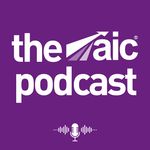General Feed Law & Feed Hygiene including traceability
Regulation 178/2002 on the general principles of food law (which includes feed law)
See Regulation 178/2002 on the general principles of food law (which includes feed law)
This provides a framework for food and feed law and imposes obligations both on Member States and on food and feed business operators. It applies to all stages of production, processing and distribution of food and feed, but does not apply to primary production for private domestic use or to the domestic preparation, handling or storage of food for private domestic consumption. A “feed business” means “any business…carrying out any operation of production, manufacture, processing, storage, transport, or distribution of feed including any producer producing, processing or storing feed for feeding to animals on his own holding”.
The main provisions which apply to feed are:
- Article 15 which sets out 'feed safety requirements'. Feed which is deemed to be unsafe is described as feed which is considered to have an adverse effect on human or animal health or which makes food derived from food-producing animals unsafe for human consumption;
- Article 16 makes general provision in respect of presentation of food and feed, which should not mislead consumers;
- Article 17 imposes general responsibilities. Feed business operators must ensure that feeds satisfy food law and check that all legal requirements are met;
- Article 18 makes provision for the traceability of food, feed and food-producing animals; and
- Article 20 sets out further responsibilities of feed business operators regarding withdrawal of feed which does not comply with feed safety requirements or which is believed to be injurious to human health, and imposes on them duties to inform the competent authorities of any breaches of the law and to co-operate with any action taken by the competent authorities;
- Article 21 concerns liability.
A paper “Safe food and animal feed” summarising Regulation 178/2002 is available on the Commission website.
Further information with links to related documents is also available on the Commission website.
This Regulation is enforced by The Animal Feed (Composition, Marketing and Use) (England) Regulations 2015 (SI 2015 No. 255).
Separate but parallel legislation applies in Scotland, Wales and Northern Ireland.
Regulation 183/2005 on feed hygiene
See Regulation 183/2005 on feed hygiene
The Regulation applies:-
- at all points in the production, supply and use of feed;
- to virtually all feed businesses that make, market or use animal feed, including manufacturers of compound feeds, feed materials, feed additives and premixtures, and importers and sellers of these products;
- also to those businesses who transport (e.g. haulage companies) or store feed, to biofuel and food businesses selling co-products or surplus food for use as feed, to manufacturers and wholesalers of pet food, and feed for wild animals, including wild game for human consumption; and
- to livestock farms, fish farms and arable farms growing and using or selling crops for feed use.
Activities excluded from the scope of the Regulation are set out in Article 2.2.
The Regulation requires feed businesses to either seek approval or registration, the difference being:-
- approval requires a prior inspection visit by the enforcement authority before a feed business establishment is allowed to operate. The requirement for approval applies to those establishments which carry out certain higher risk activities such as the manufacture and marketing of certain feed additives or premixtures of feed additives, or the production of feed containing specified feed additives or the manufacturing of oils and fats for feed use;
- registration involves the placing of establishments on a list with follow-up checks. The vast majority of feed business establishments, including most farms, are subject to the registration requirement.
The Regulation also requires that approved and registered feed businesses must only be supplied by other approved/registered feed businesses operators.
The main conditions cover various operational requirements with which feed businesses must comply.
The conditions are mainly set out in the following Annexes:-
- Annex I covers the requirements that primary producers (farms) have to follow. Operations should be managed to avoid hazards and to ensure that feed products produced and used are protected against contamination and spoilage. Records must be kept including details of feed bought-in;
- Annex II applies to businesses operating other than at the level of primary production (e.g. feed merchants and feed compounders), and includes requirements relating to facilities and equipment, training of personnel, production, quality control, storage and transport and record-keeping. In addition, feed businesses (except most farms) are required to apply the principles of a HACCP system. Annex II has been amended by Commission Regulation 225.2012 as regards the approval of establishments placing feed products, on the market, derived from vegetable oils and blended fats and sets out specific requirements for the production, storage, transport and dioxin testing of oils, fats and derived products; and
- Annex III is a code on animal feeding practices, which producers are obliged to follow when feeding food-producing animals.
Associated legislation and guidance
Regulation183/2005 is enforced in England through The Animal Feed (Hygiene, Sampling, etc. and Enforcement) (England) Regulations 2015 (SI 2015 No. 454). Separate but parallel legislation applies in Scotland, Wales and Northern Ireland.
The FSA website provides guidance on animal feed which applies to England with separate but parallel provisions being provided by the authorities in Wales, Northern Ireland and Scotland. The guidance covers a range of issues including:-
- Starting an animal feed business;
- Legal clarification on reformulation and animal feed production establishments;
- Third country representation for animal feed businesses.
There is also a section on:-
- Prepare your business for Brexit
Hazard Analysis and Critical Control Point (HACCP) how to manage the food hygiene and safety procedures in your food business.
The FSA website provides guidance for farmers producing animal feed on:-
- requirements and registration;
- farmers mixing with additives and premixtures;
- animal feed record-keeping requirements for farmers.
The regulation makes reference to the development of microbiological criteria for feeds.
Copies of two feed industry documents below:-



